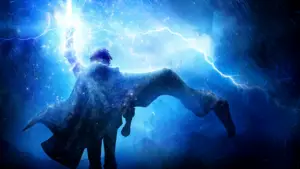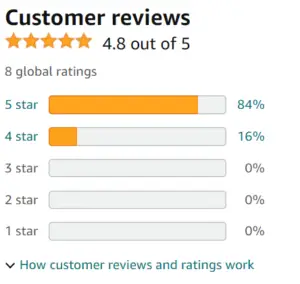“You’re writing about little girls,” she said with a speculative tone, but then with a shrug, she added, “but you do it really well.” That was my writing coach, Kathie Giorgio. We were discussing a scene from Spirit Sight. And it’s true. On both accounts, in my opinion. The story revolves around Minna (13) and Alyn (10), and there are also Tora, Ibbe, Frida and Liv who are all between 8 and 11. I once told Kathie I thought I was writing a book for women, and based on the responses from my beta readers, I may have been right. All of my beta readers have said good things, but only the women seem sincere, and only the women come back for more. Why did I write such a female centric story? The easy answer is that I started writing shortly after reading Mark Lawrence’s Book of the Ancestor trilogy, which is unique among the hundreds of fantasy novels I’ve read in that most of the characters are women or girls.
But a more nuanced answer has to do with my unique psychology. Not that I’m more unique than anyone else, but to paraphrase Stitch in Disney’s Lilo and Stitch, “This is my psyche. It’s little and broken, but still good.”
Until I was in first grade, almost all my friends were girls. It wasn’t until the day my first grade teacher, who I adored, knelt beside my desk and whispered, as if revealing a shameful secret, “Ross, it’s not appropriate for little boys to play with little girls at recess.” I was mortified, and I made sure to show I was as rough and tumble as the rest of the boys. Fortunately, as my wife is fond of saying, “We pass.” I had no trouble fitting in with the boys, but I always felt like I was missing part of myself.
It wasn’t until middle school that I started to form close friendships with girls again, but by then, it was complicated by adolescence. Girls were often confused by a boy who just wanted to be friends, mistaking friendliness for flirting. I was often frustrated by their confusion. And I want to make clear is what I’m talking about isn’t a question of sexuality. That’s an entirely different topic, and completely irrelevant to this discussion.
Through middle school, high school, and college, I had male and female friends, but, despite recurring complications, the ones I felt most myself with were women. Still, it wasn’t until one night in college that I realized I might not be like most men. I was an RA in a dorm in my junior year, and one of the things we did was to get men’s and women’s floors together to talk about dating, relationships and sex. Wow! First year college students, free from parental constraints for the first time, hormones running free, given license to ask whatever. They were going to get some questions answered. It was fraught and fascinating. I don’t have the space to go into details here, except to say the differences in attitudes between the genders were laid bare. In the midst of the free-for-all, I found myself staring across that gulf from the wrong side. I’m sure I wasn’t the only one, just the only one willing to say so. I’m sure it was no coincidence that, as I lay in bed that night, I remembered my first grade teacher’s admonishment for the first time in years.
When I met my wife Deb, my best friend was a woman, who served as my best person at our wedding. We went our separate ways not long after, when her new husband told her it was inappropriate for her to have such a close male friend. It wasn’t the first time. Fortunately, as an introvert, I don’t need many friends, and my best friend for the past 36 years has been a woman. Deb has her own issues with rigid definitions of gender, and together, we’ve helped one another stake our claims to the fuzzy middle of the gender spectrum.
So, without over analyzing it too much, Spirit Sight is about girls because it feels right. I sometimes wonder if the ages of Minna and the others has to do with the years I was exiled from my true self by my first grade teacher’s well-meaning admonishment. Who knows? I’ve been asked which of my characters I identify with. The truth is, I identify with both Minna and Harold. One is a girl, forced to deny a part of herself at a young age, the other a complex man who isn’t quite comfortable in his own skin.
The novel I’m writing with my wife now has a male protagonist, but I suspect that other side of me will always show through.
Andsutra!




2 thoughts on “Why Minna?”
Thank you for sharing this bit of yourself with us. Although I must admit I never really even thought about the fact that your main protagonist was a little girl when you kindly allowed me to edit the first part of your book, this does shed some light on why you’re so good at it–and perhaps that’s the reason that it never occurred to me to think it might be weird 😉
Thank you!
Comments are closed.